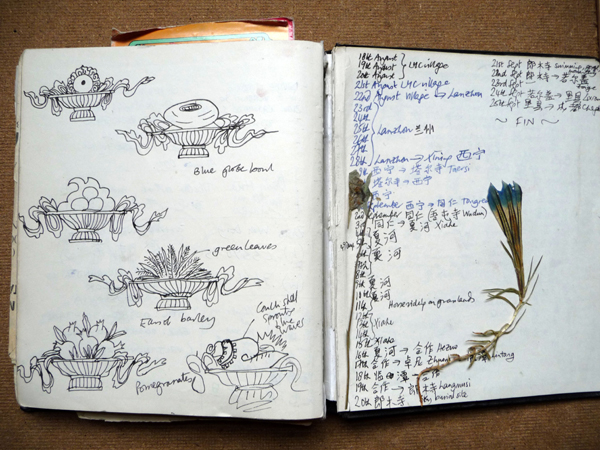Matter of taste
By Yang Yang | China Daily | Updated: 2018-11-30 07:54

"A lot of people said it was one of the best presentations they'd seen. It was totally fascinating because all these things are new for them," she says.
"They just probably thought duck tongue a bit weird, but they never actually considered why you might want to eat a duck's tongue, so I'm like a kind of missionary for this. I'm trying to get people to open their minds."
She said kou gan enables people to taste a whole range of things like Chinese people.
However, as a woman growing up in Oxford, Dunlop also spent more than a decade to finally cross the last frontier. In Shark's Fin and Sichuan Pepper, she records how she "turns into" a Chinese through adventures with Chinese food and increasing her understanding of its role in society as well as its deep roots in culture.
Now a translation of the book is available on the Chinese mainland.
Dunlop visited China for the first time in the fall of 1992. Although she grew up in a household always filled with exotic flavors-from Japan, Turkey, Spain, India and Austria-and she was brave enough to try unfamiliar food, she struggled to swallow her first preserved duck eggs at a Hong Kong restaurant.
"They leered up at me like the eyeballs of some nightmarish monster, dark and threatening. Their albumens were a filthy, translucent brown, their yolks an oozy black, ringed with a layer of greenish, moldy grey. About them hung a faintly sulfurous haze," she writes.
From Hong Kong, she went to Guangzhou and other parts of China and continued her adventures with local dishes, including the "unexpectedly palatable" stir-fried snake whose "flesh was still edged in reptilian skin".
The preserved duck eggs and other dishes that "made (her) flesh crawl", however, did not cripple Dunlop's interest in the "disorganized" but "vibrant" Chinese mainland in 1992, which she observed was completely different from her imagination.
Returning to London, besides learning Mandarin and writing quarterly roundups of Chinese news for China Now magazine, she also tried Chinese recipes.
In 1993, on her way home from Lhasa, she stopped by Chengdu to visit a friend and ate representative Sichuan dishes such as mapo tofu and yuxiang qiezi (fish-fragrant eggplant) for the first time, which impressed her.
The next year, she got a scholarship to study in Sichuan University for a year. A reason for her to choose Chengdu rather than Beijing or Shanghai was her memory of the food there.
























